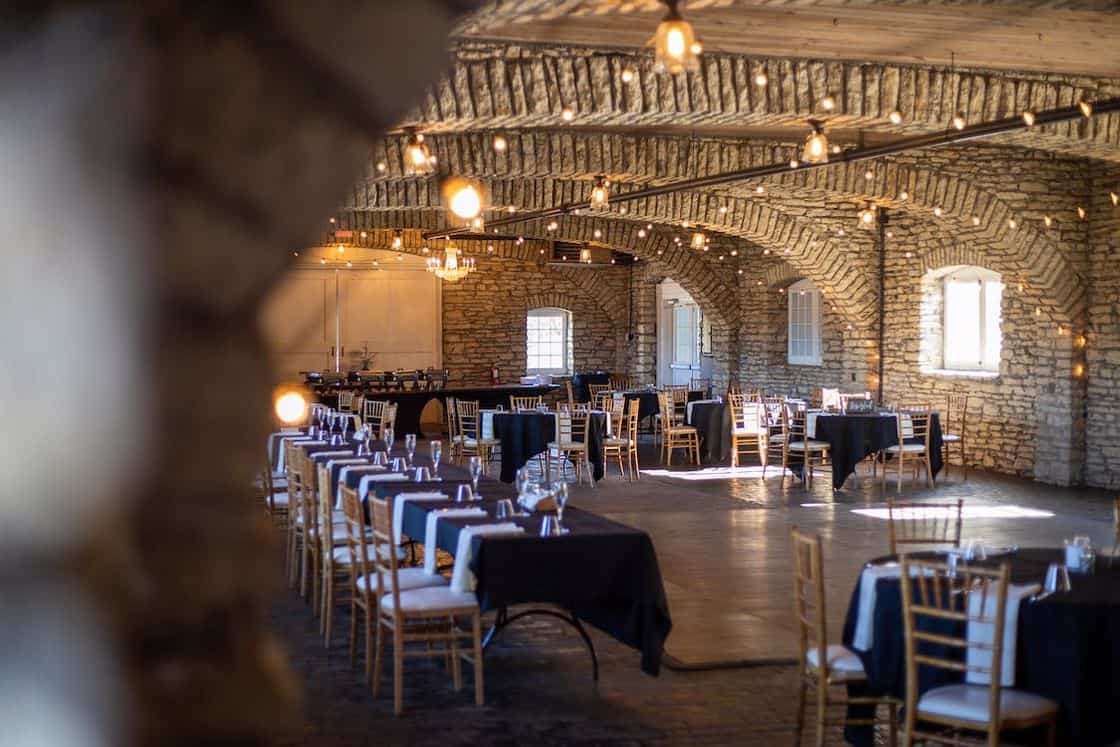Just How Event Production Functions: A Comprehensive Consider the Refine
Event production is a facility and organized procedure that needs cautious preparation and execution. It begins with establishing clear goals and comprehending the target audience. Each step, from budgeting to venue selection, plays an essential duty in guaranteeing success. As the process unfolds, various components have to line up effortlessly. The subtleties of this complex operation frequently go undetected. What are the crucial stages that add to an unforgettable event?

The Initial Planning Stage
When starting on event production, cautious planning is important to assure an effective end result. The initial drawing board works as the foundation for all subsequent initiatives. Throughout this stage, event producers should define the event's purpose and objectives clearly. Identifying the target audience aids customize the experience and messaging, assuring relevance and engagement.Producers need to likewise think about the event layout, whether it be in-person, virtual, or hybrid, as this will influence numerous logistical components. Picking an ideal day and location is important, as it influences ease of access and availability.Furthermore, putting together a trustworthy team is fundamental for dividing responsibilities and simplifying interaction. Establishing a timeline with milestones guarantees all jobs are completed on schedule. This stage involves comprehensive research, consisting of determining potential obstacles and creating techniques to mitigate threats. Eventually, a well-structured initial preparation phase sets the tone for an effective event production journey.

Budgeting and Resource Allowance
In event production, effective budgeting and source allocation are essential for success - event production charlotte. Establishing economic specifications establishes the foundation for all succeeding decisions, while source distribution methods guarantee that every part of the event is sufficiently supported. Together, these components help keep control over expenditures and enhance using available resources
Developing Financial Parameters
Establishing monetary criteria is vital to the success of any type of event production, as it establishes the foundation for efficient budgeting and source allocation. This process starts with specifying the overall budget plan, which incorporates all aspects of the event, including location prices, food catering, and advertising and marketing. By identifying offered funds, event organizers can focus on expenses and allot resources appropriately. Additionally, it is important to conduct extensive market research to anticipate prospective expenses and recognize financing resources, such as sponsorships or ticket sales. Developing clear economic parameters also aids in risk management, enabling coordinators to allot backup funds for unforeseen costs. Eventually, a distinct spending plan functions as a roadmap, guiding the event production team towards attaining their objectives while keeping economic control.
Source Circulation Methods
Efficient source circulation approaches are important for taking full advantage of the effect of an event while adhering to spending plan restrictions. Successful event production requires a meticulous technique to budgeting and resource appropriation. Planners must focus on crucial aspects such as location, event catering, and technology, guaranteeing that funds are allocated to areas that improve guest experience. A detailed spending plan must detail expected expenses and determine areas for prospective expense savings, such as negotiating with suppliers or discovering sponsorship chances. Additionally, tracking expenses throughout the preparation procedure aids stop overspending. By employing critical resource circulation, event producers can supply an unforgettable experience while maintaining monetary responsibility, inevitably adding to the total success of the event.
Venue Option and Logistics
Selecting the appropriate venue is crucial to the success of any event, as it establishes the stage for the total experience. Place selection entails evaluating different factors, including ability, ease of access, and area. Planners must consider the target audience and the nature of the event, making certain the venue lines up with the event's goals.Logistics play a substantial role in this process, entailing arrangements for seats, audiovisual tools, and catering services. An appropriate place should promote smooth flow for participants and staff, enhancing engagement.Additionally, examining possible venues for services like car parking, bathrooms, and emergency situation leaves is important for safety and benefit. The timeline for protecting the location is additionally essential, as popular locations might schedule quickly - event production charlotte. Complete planning and timely execution can ultimately add to a seamless event experience, making venue selection and logistics fundamental elements of effective event production.
Imaginative Concept Development
While the venue sets the physical phase, innovative principle advancement shapes the event's identity and narrative. This process starts with recognizing the event's purpose and target market, permitting event producers to formulate an engaging motif that resonates with participants. Conceptualizing sessions usually include diverse perspectives, cultivating ingenious ideas that line up with the event's goals.Once a theme is developed, aesthetic elements such as shade palettes, signage, and style are created to improve the overall ambience. Storytelling techniques might also be incorporated to produce an engaging trip for individuals, assuring a remarkable experience. Furthermore, factors to consider regarding home entertainment, activities, and interactive elements are aligned with the selected concept, enhancing the theme throughout the event.Ultimately, reliable imaginative concept growth assurances that every element of the event works cohesively, leaving a lasting impression on participants and meeting the event's objectives. This fundamental work lays the groundwork for succeeding planning and implementation stages.
Teaming up With Vendors and Suppliers
Successful event production pivots on effective partnership with suppliers and providers. Picking reputable companions, working out agreements properly, and guaranteeing prompt distributions are vital actions in this procedure. Each of these elements contributes substantially to the overall success and smooth execution of an event.
Choosing Reliable Allies
How can event coordinators assure a seamless production experience? Selecting dependable partners is necessary in attaining this objective. Event planners should carry out complete study to determine vendors and suppliers with a tested performance history click for info of quality. This consists of inspecting recommendations, assessing profiles, and reviewing consumer comments. Coordinators ought to prioritize partners who show professionalism helpful site and reliability, timely interaction, and a desire to team up. Structure strong connections fosters count on and enables quick analytical during the event. Furthermore, it is advantageous to choose local suppliers that comprehend the venue and regional logistics. Inevitably, an effective event rests on the synergy between planners and their companions, making sure that every element of production runs smoothly and successfully.
Bargaining Agreements Successfully
Efficient negotiation of contracts is a vital action in the partnership between event planners and their suppliers and providers. This procedure involves clear interaction of assumptions, deliverables, and timelines. Coordinators should perform complete research on market prices and sector standards to develop a standard for settlements. It is essential to create a joint atmosphere, urging open dialogue concerning terms, prices, and possible contingencies. Organizers ought to also prioritize recognizing the vendor's capacities and limitations to align their demands effectively. Versatility can cause equally valuable contracts, fostering long-lasting partnerships. Crafting distinct agreements that include specific efficiency metrics can assist assure accountability, ultimately causing effective event execution and satisfaction for all celebrations included.
Guaranteeing Timely Deliveries
Timely distributions are essential for the smooth implementation of any kind of event, calling for diligent collaboration in between planners and their suppliers and distributors. Reliable communication is vital, as it assists establish clear assumptions relating to shipment schedules, quantities, and certain needs. Organizers frequently produce in-depth timelines to lay out critical landmarks, making certain all parties remain aligned throughout the process. Regular check-ins with vendors can help identify potential delays early, allowing for aggressive remedies. Furthermore, developing strong relationships with dependable providers fosters count on and accountability, which can result in far better solution and prioritization. By focusing on these collective efforts, coordinators can reduce disruptions, thereby improving the general effectiveness of event production and guaranteeing that all required materials and solutions show up as planned.
Marketing and Promo Methods
While organizing an occasion, the success of marketing and promo techniques can greatly affect presence and interaction. Reliable methods often consist of a mix of digital advertising and marketing, conventional advertising and marketing, and grassroots outreach. Using social media platforms permits for real-time interaction and targeted advertising and marketing, reaching certain demographics efficiently. Email advertising and marketing campaigns can further involve potential guests with personalized material and reminders.Collaborations with influencers or sector leaders can also improve credibility and broaden reach. Developing engaging content, such as video clips or blog sites, helps to produce buzz and endure passion leading up to the event. Additionally, leveraging early-bird discount rates and unique perks can incentivize ticket purchases.Promoting through typical channels, such as posters or regional media, remains appropriate, particularly in community-focused occasions. A thorough method that integrates several methods warranties optimum visibility and interaction, inevitably adding discover this to the event's success and the production of a memorable experience for attendees.
On-Site Execution and Administration
On-site implementation and monitoring are essential components that determine the overall success of an event. Effective coordination during the event guarantees that all elements align with the planned agenda. Event supervisors look after logistics, consisting of supplier control, devices configuration, and guest services. Keeping an eye on timelines and attending to any type of unforeseen problems are fundamental for maintaining a smooth experience.The team plays a substantial function, as qualified personnel are responsible for various jobs such as enrollment, info dissemination, and technological assistance. Communication among employee is crucial; it promotes a collaborative environment and makes it possible for quick resolution of challenges.Additionally, safety methods need to be complied with, safeguarding the health of all participants. Post-event assessments are likewise part of on-site administration, offering insights for future improvements. By focusing on these aspects, event producers can produce memorable experiences that meet or go beyond guest assumptions while attaining the event's objectives.
Frequently Asked Inquiries
Exactly how Do I Select the Right Event Theme?
Picking the appropriate event theme entails thinking about the target audience, event purpose, and location. Investigating present trends and gathering input from stakeholders can also motivate imaginative ideas that reverberate and create an unforgettable experience.

What Prevail Blunders in Event Production?
Usual errors in event production commonly include inadequate planning, inadequate interaction among staff member, spending plan mismanagement, ignoring to think about the audience's demands, and stopping working to carry out a comprehensive post-event evaluation for future renovations.
Just How Can I Determine Event Success?
To determine event success, one can evaluate attendee satisfaction, involvement degrees, budget plan adherence, and post-event feedback. Secret performance indications, such as ticket sales and social networks interactions, additionally offer beneficial understandings into general effectiveness.
What Should I Do if It Moistens the Event Day?
In the event of moisten the day, the organizer needs to execute backup plans, such as safeguarding camping tents or relocating activities inside. Communication with participants about modifications is important to assure a smooth experience despite climate challenges.
Exactly How Can I Ensure Guest Involvement During the Event?
